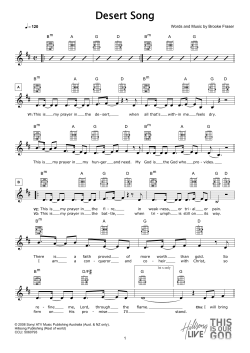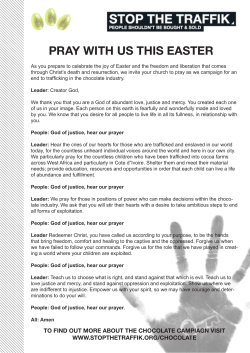
Pussy Riot: A Punk Prayer Discussion Guide
www.influencefilmforum.com Pussy Riot: A Punk Prayer Discussion Guide Directors: Mike Lerner, Maxim Pozdorovkin Year: 2013 Time: 88 min You might know this director from: The Notorious Mr. Bout (Pozdorovkin, 2014) Capital (Pozdorovkin, 2009) FILM SUMMARY Important, urgent, and blistering, PUSSY RIOT: A PUNK PRAYER tells the story of Pussy Riot, a punk band formed by a feminist art collective who performed a 40-second “punk prayer” against Putin’s government in the Cathedral of Christ the Savior, Russia’s main orthodox church. Dressed in brightly colored balaclavas, dresses, and tights, they shouted their punk prayer to the Virgin Mary, urging her to become a feminist and banish Putin, decrying the corrupt entanglements of church and state. The provocative performers were ousted. Pussy Riot was charged with “rude disruption of social order.” Two members fled Russia. Three remained and were arrested. The film delves into the court case that followed, with footage of the court proceedings, which Pussy Riot members call a show-trial and critics deem a farce. The women on trial—Nadezhda Tolokonnikova, Maria Alyokhina and Yekaterina Samutsevich—sit in a glass-walled cage during the hearings. Eventually, they are convicted of “hooliganism motivated by religious hatred.” PUSSY RIOT: A PUNK PRAYER is necessary viewing, especially for those who associate Pussy Riot with neon masks and rooftop guerilla performances. In the film, these artists explain their actions in court to the judge and to journalists, and by extension, to the world. Interviews with family members also humanize the women, revealing how their identities and ideals were partly shaped by a post-Glasnost Russia that is becoming increasingly restrictive and regressive. Discussion Guide Pussy Riot: A Punk Prayer 1 www.influencefilmforum.com FILM THEMES The film was made in 6 months and focuses on the court case. It reveals the frightening reality of the justice system in Putin’s Russia and demonstrates why Pussy Riot members risk arrests and imprisonment to speak out against authoritarianism and censorship. ART AS PROTEST In most countries, even the most provocative performance art would not be punished with a 2-year prison colony sentence. The film shows how Russia’s draconian legal system infringes upon human rights and creates a culture of fear to silence people. Pussy Riot members use art to express themselves and engage the public. They want to change the political system, but do not want to work within it as politicians. Instead, as artists, they seek to break down the system and start a revolution. Thus, their performance art is intended to provoke, to jolt people awake and motivate them to get involved. FREE SPEECH Pussy Riot members have been threatened, arrested, and imprisoned, but they have not been silenced. While in prison, Nadya Tolokonnikova spoke up for herself and fellow inmates about the brutal, inhumane prison conditions. Since her release, she and Maria Alyokhina have continued to fight for prison reform, despite attacks and intimidation. Though they are no longer part of Pussy Riot, they continue to uphold the group’s original goals of being a voice for the voiceless. Their bravery reminds those living in freer countries to be grateful for their freedoms of speech and to use it wisely. RELIGION Pussy Riot’s intention was not to offend churchgoers but to denounce the corrupt entanglements of church leaders with Putin’s government. However, for some, the performance was sacrilegious and blasphemous, especially since religion was banned during the Soviet era. The film exposes the troubling undercurrents of religious conservatism in Russia, as well as the gender politics involved in a patriarchial institution. Regressive attitudes are captured in the language used by orthodox church members who describe Pussy Riot members as “witches” that would have been “hanged in the 16th century.” FEMINISM Pussy Riot members are proudly feminist and have even helped redefine the meaning of “pussy.” For them, freedom for all includes equal rights for women and equal rights for the gay community. Some Russians claim that feminism is a Western ideology that shouldn’t be imposed on Russia. Journalist Masha Gessen says that while the West underwent sexual revolutions, Soviet Russia did not. Thus, legislation is not enough; people need to also experience a cultural evolution. Discussion Guide Pussy Riot: A Punk Prayer “Art is not a mirror to reflect the world, but a hammer with which to shape it.” Bertolt Brecht “A great work of art— something that makes people pay attention, return to the work again and again, and reexamine their assumptions, something that infuriates, hurts, and confronts— a great work of art is always a miracle.” Masha Gessen 2 www.influencefilmforum.com FURTHER DISCUSSIONS: NOTES: 1. How did this film change your perspective or understanding of punk art activists? Did the film change your concept of feminism too? 2. Has art ever provoked you or inspired you to change your thinking or to take action? How so? 3. Do you think art should only target those who can “understand” it? Are there places where art does not belong, for example, in a church or government site? 4. Why do you think Pussy Riot believed that a controversial performance was the only way they could get people’s attention? How effective was their strategy? What are the advantages or risks in provocative art? 5. Do you believe that separation of church and state is ethical and/or necessary to the health of society? Why or why not? 6. Can you sympathize with the church members who felt their religion had been disrespected? Have you ever felt that your own religious or cultural beliefs were violated in some way? 7. Does Nadya’s and Masha’s continued activism pose a danger to their families? Or are they fighting for a freer country for their children? 8. Russian journalists have been threatened, attacked, and killed, which has created a culture of silence and lies. If domestic journalists are restricted, what can foreign journalists do to ensure silenced voices are heard? What can readers and writers do, in Russia and abroad? 9. Masha Gessen compares the situation of LGBT rights in Russia with the anti-Semitic oppression of the Soviet era, and points out how the West placed pressure on the USSR to reform. Do you think this is a fair comparison? What is the moral responsibility of nations in regards to human rights violations occurring in other countries? 10. Gessen writes that the Western sexual revolution did not occur in Soviet Russia. Is it fair to expect countries to adopt legislation and political change if they haven’t yet undergone the cultural revolution necessary for widespread changes in attitudes? Discussion Guide Pussy Riot: A Punk Prayer 3 www.influencefilmforum.com FILM FACTS: • PUSSY RIOT: A PUNK PRAYER was one of fifteen films short-listed for an Oscar nomination in 2014. • PUSSY RIOT: A PUNK PRAYER won a World Cinema Documentary Special Jury Award for Punk Spirit at Sundance. • The documentary’s premiere was banned in Russia. The first public screening was cancelled at the last minute when authorities called the state-run theater directors and threatened the loss of their jobs. • Russian Orthodox Church patriarch, Kirill I, was rumored to have worked with the K.G.B. According to the Independent, Patriarch Kirill described Pussy Riot as doing the work of Satan. • While in prison, Nadya Tolokonnikova wrote about the horrific prison conditions at her penal colony. She and Maria Alyokhina are now dedicated to fighting for prison reform in Russia. • Video footage of Pussy Riot’s protest performance in the cathedral is banned in Russia under its “extremism” law, which was originally intended to apply to neo-Nazi and terrorist groups. Internet service providers are required to block access to the video. • In a publicized act of amnesty, Putin released some prisoners before the Sochi Olympics. The amnesty included the Pussy Riot members, releasing them just a few months before their sentences would end. Many critics believe the act was specious and cynical. • In March 2014, Nadya and Masha were eating at a McDonald’s when they were attacked by a group of men wearing patriotic symbols. The men used pepper spray and poured trash and green antiseptic over them. The women were left with chemical burns and head injuries. They were in the city of Nizhny Novgorod to visit a local jail with their prisoners rights group. • In February 2014, Pussy Riot members attempted to perform in Sochi under an advertisement for the Olympics. Cossack militia members attacked them with whips and teargas. A video was taken of police and Cossacks as they hit the women with batons, tore off their masks, and pepper sprayed the band members. • Nadya’s father, Andrey Tolokonnikova, co-wrote the lyrics for the punk prayer that Pussy Riot performed in the church. Several of his journal entries about his daughter and her political activism have been published in the Huffington Post. WAYS TO INFLUENCE 1. Share this film with others, so they can learn about Pussy Riot and the political issues they are trying to uncover and change in Russia. 2. Nadezhda Tolokonnikova and Maria Alyokhina have launched a non-governmental organization aiming to protect the rights of prisoners. Support their NGO at zonaprava.info. 3. Buy, read, and share Masha Gessen’s book, “Words Will Break Cement: The Passion of Pussy Riot.” 4. Buy, read, and share Rough Trade books’ “Let’s Start A Pussy Riot.” All sales go to support Pussy Riot. 5. Support your local artists. Also, make art of your own that addresses local, national, and international politics—not only to express yourself, but to get others involved and inspired. Discussion Guide Pussy Riot: A Punk Prayer 4
© Copyright 2025












